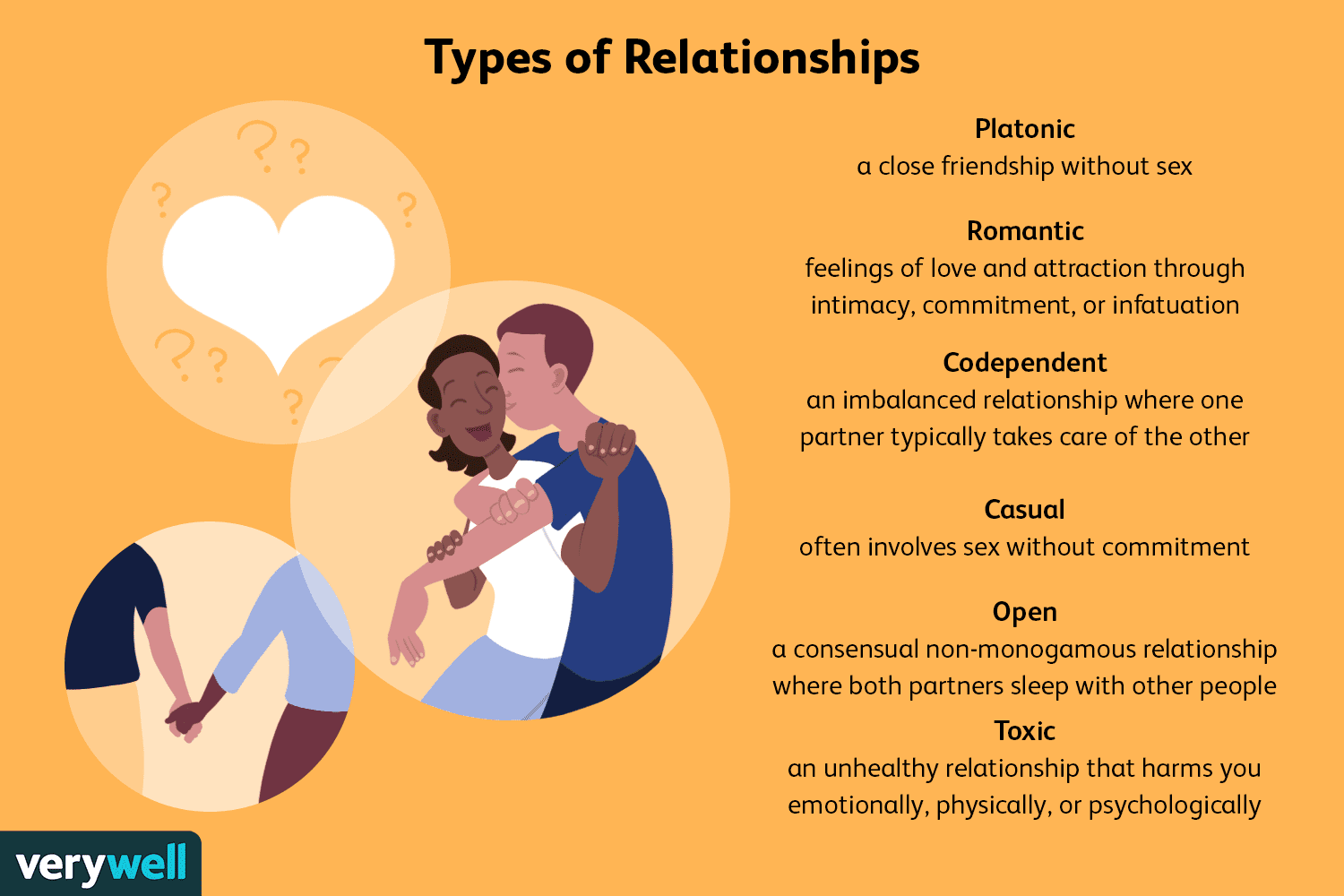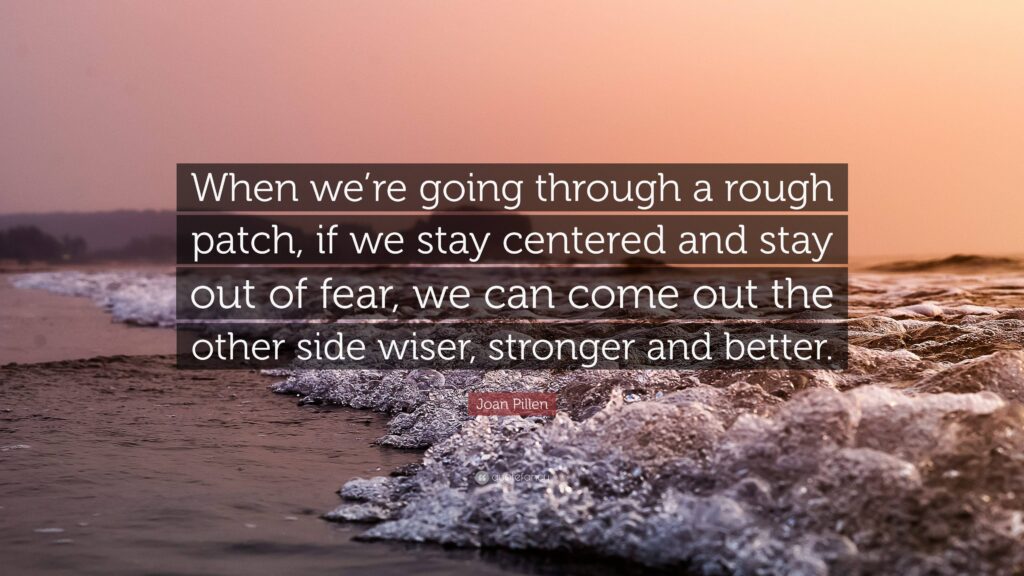
Sometimes, relationships can be a bit confusing. One moment you feel closer than ever, and the next, it seems like you’re drifting apart. It’s during these uncertain times that you start to question if it’s just a rough patch or a sign of something bigger. That’s where the product “Are We Growing Apart, Or Just Going Through A Rough Patch?” comes in. This innovative tool will help you navigate the complexities of your relationship, providing insights and guidance to determine whether you’re truly growing apart or simply experiencing a temporary hiccup. Say goodbye to doubt and confusion, and regain clarity about the state of your relationship with this invaluable resource.
Common Signs of Growing Apart
Lack of communication
One of the most common signs that a couple is growing apart is a lack of communication. When you and your partner no longer talk to each other on a deep and meaningful level, it can be a clear indicator that something is amiss. Communication is the foundation of any relationship, and when it starts to break down, it can lead to feelings of distance and disconnection.
Different interests and goals
Another sign that you may be growing apart from your partner is when your interests and goals begin to diverge. It’s normal for individuals to have their own passions and pursuits, but when those passions and pursuits no longer align with your partner’s, it can create a sense of separation and detachment. If you find yourself constantly engaging in activities or pursuing goals that don’t involve your partner, it may be a sign that you’re growing apart.
Feeling disconnected emotionally
Emotional disconnection is a common symptom of growing apart in a relationship. You may no longer feel the same level of emotional intimacy with your partner, and conversations that used to be easy and fulfilling may now feel forced and superficial. When you no longer feel emotionally connected to your partner, it can lead to feelings of loneliness and isolation.
Decreased intimacy
Physical intimacy is an important aspect of a romantic relationship, and when it starts to decline, it can be a sign of growing apart. If you and your partner are no longer intimate or if your physical encounters have become infrequent and lackluster, it may suggest a deeper issue within the relationship. Decreased intimacy can lead to feelings of resentment and frustration, further driving a couple apart.
Causes of Growing Apart
Changes in priorities
As individuals grow and evolve, their priorities in life may also change. It’s natural for priorities to shift over time, but when a couple’s priorities no longer align, it can lead to growing apart. For example, one partner may prioritize their career while the other focuses on personal growth or starting a family. These differences in priorities can create tension and distance within the relationship.
Lack of quality time together
Spending quality time together is crucial for maintaining a strong connection in a relationship. However, when life gets busy and responsibilities pile up, finding time to prioritize your relationship can become challenging. If you and your partner are constantly distracted and rarely have meaningful moments together, it can contribute to growing apart. Making time for each other and nurturing the relationship is essential to prevent this from happening.
Failure to address issues
Unresolved issues can fester in a relationship and create distance between partners. When problems arise, it’s crucial to address them openly and honestly. However, if you and your partner avoid or brush aside issues, it can lead to resentment and a breakdown in communication. Failure to address issues promptly can build a wall between you and your partner, causing the rift to grow wider over time.
Incompatible values
Shared values are the foundation of a thriving relationship. When partners have conflicting values or beliefs, it can create tension and a sense of disconnect. For example, if one partner values adventure and spontaneity while the other prefers stability and routine, it can lead to clashes and a growing sense of incompatibility. It’s important for couples to discuss and understand each other’s values to ensure that they can navigate differences and grow together.

This image is property of www.lovepanky.com.
Effects of Growing Apart
Increased conflict and tension
Growing apart often leads to an increase in conflict and tension within a relationship. When partners no longer feel connected or understood by each other, it can result in frequent arguments and disagreements. The lack of emotional closeness can make it difficult to resolve conflicts effectively and can cause even small issues to escalate into major problems.
Loss of emotional connection
A significant effect of growing apart is the loss of emotional connection between partners. Emotional connection is the glue that holds relationships together, and without it, couples can feel distant and lonely. When you no longer feel understood or supported by your partner, it can lead to feelings of isolation and unhappiness.
Decreased trust and support
Growing apart can erode the trust and support that once existed in a relationship. When partners no longer feel emotionally connected, it can be difficult to rely on each other for support and understanding. This lack of trust can lead to feelings of insecurity and doubt, further contributing to the growing distance between partners.
Less overall happiness
Ultimately, growing apart can result in less overall happiness in a relationship. When you and your partner are no longer on the same page emotionally, mentally, and physically, it can be challenging to find joy and fulfillment within the relationship. Less happiness and contentment can further exacerbate the growing distance and potentially lead to the end of the relationship if not addressed.
Steps to Reconnect
Open and honest communication
To reconnect with your partner, open and honest communication is key. Share your feelings, concerns, and desires openly, and encourage your partner to do the same. Engage in active listening, seeking to understand each other’s perspective without judgment. By fostering an environment of communication and understanding, you can begin to rebuild the emotional connection.
Investing time and effort into the relationship
Reconnecting with your partner requires investing time and effort into the relationship. Make a conscious effort to prioritize each other and spend quality time together. Plan dates, engage in activities that you both enjoy, and create new shared experiences. By actively nurturing the relationship, you can build a stronger connection and grow together.
Seeking professional help or guidance
If you’re struggling to reconnect on your own, don’t hesitate to seek professional help or guidance. Couples therapy or counseling can provide a safe space for open communication and can help you navigate the challenges you’re facing. A trained therapist can offer guidance and tools to rebuild trust, improve communication, and enhance emotional intimacy.
Finding shared interests and activities
Finding shared interests and activities can also help reconnect with your partner. Explore new hobbies or revisit old ones together. Engaging in joint activities can create opportunities for bonding and rediscovering each other. It can also foster a sense of teamwork and shared goals, strengthening your connection in the process.

This image is property of cdn-aiheb.nitrocdn.com.
Recognizing a Rough Patch
Temporary decrease in communication
During a rough patch, you may experience a temporary decrease in communication. This can manifest as shorter or less frequent conversations, with both partners feeling distant or withdrawn. It’s important to recognize that this decrease in communication is a temporary symptom of the rough patch and not a sign of growing apart.
Conflict and disagreement on specific issues
A rough patch often brings about conflicts and disagreements on specific issues. These conflicts may arise due to heightened stress or tension within the relationship. It’s crucial to address these issues individually rather than allowing them to become a representation of the overall state of the relationship. By working through specific conflicts, you can move towards resolution and growth.
Feeling stressed or overwhelmed
Feeling stressed or overwhelmed is common during a rough patch. External factors such as work, finances, or family responsibilities can contribute to increased stress levels, which can impact the relationship. It’s important to recognize that these feelings are temporary and related to the rough patch rather than an indication of growing apart.
Periods of decreased happiness
A rough patch often results in periods of decreased happiness within the relationship. You may find yourself feeling less satisfied or fulfilled, and moments of joy may seem fleeting. It’s vital to remember that these periods of decreased happiness are temporary and can be overcome with effort and commitment from both partners.
Causes of Rough Patches
Work or financial stress
Work-related or financial stress can be a significant cause of rough patches in a relationship. The pressure and demands of work can consume your time and energy, leaving little room for nurturing the relationship. Financial strain can also create tension and arguments, further contributing to the rough patch. Managing work and financial stress together as a couple can help alleviate the strain on the relationship.
Changes in routine or circumstances
Changes in routine or circumstances can disrupt the harmony in a relationship and lead to rough patches. Moving to a new house, starting a new job, or having a significant life event can create stress and strain. Adjusting to these changes may require time and effort from both partners to regain balance and stability in the relationship.
Lack of individual self-care
Neglecting individual self-care can impact the overall health of a relationship. If one or both partners are not taking care of their physical, emotional, or mental well-being, it can result in increased stress and decreased happiness. Prioritizing self-care and supporting each other’s well-being can help overcome a rough patch and foster a more positive and fulfilling relationship.
Unresolved conflicts from the past
Unresolved conflicts from the past can resurface and contribute to a rough patch in a relationship. Lingering resentments or unresolved issues can affect the present, creating tension and distance between partners. Taking the time to address and resolve these past conflicts can help create a stronger foundation for moving forward and overcoming the rough patch.

This image is property of people.com.
Effects of Rough Patches
Temporary strain on the relationship
Rough patches can create a temporary strain on the relationship. The conflicts and challenges that arise during this time can put stress on both partners and the relationship as a whole. It’s important to remember that this strain is a natural part of the process and doesn’t necessarily indicate a permanent decline in the relationship.
Increased need for understanding and compromise
During a rough patch, there is an increased need for understanding and compromise. Both partners may be dealing with their own emotions and challenges, which can make it difficult to find common ground. By practicing empathy and seeking to understand each other’s perspective, you can foster an environment of cooperation and compromise.
Opportunity for growth and self-reflection
A rough patch can provide an opportunity for growth and self-reflection. It allows you and your partner to examine the challenges you’re facing and learn from them. By identifying areas for improvement and personal growth, you can work together to overcome the rough patch and emerge stronger as individuals and as a couple.
Potential for strengthening the relationship
Despite the difficulties, a rough patch can also present the potential for strengthening the relationship. By navigating challenges together, you and your partner can build trust, resilience, and a deeper understanding of each other. Overcoming a rough patch requires commitment and effort from both partners, but it can lead to a stronger and more fulfilling relationship in the long run.
Steps to Overcome a Rough Patch
Open and respectful communication
To overcome a rough patch, open and respectful communication is essential. Create a safe space for open dialogue, where both partners can openly express their thoughts and feelings. It’s important to listen actively and without judgment, seeking to understand each other’s perspective. By establishing a foundation of open communication, you can begin to address the challenges you’re facing.
Active listening and empathy
Active listening and empathy are crucial during a rough patch. Be present and attentive when your partner is sharing their thoughts and feelings, and make an effort to truly understand their perspective. Practice empathy by putting yourself in their shoes and acknowledging their emotions. This can create a sense of validation and create a stronger connection between partners.
Problem-solving and compromise
Problem-solving and compromise are key skills to overcome a rough patch. Approach the challenges you’re facing as a team, working together to find solutions that satisfy both partners. This may require brainstorming, negotiation, and a willingness to meet each other halfway. By working towards mutual resolutions, you can rebuild trust and strengthen the relationship.
Reestablishing routines and shared activities
A crucial step in overcoming a rough patch is reestablishing routines and shared activities. Find activities that you both enjoy and create opportunities to spend quality time together. Engaging in shared experiences can help reignite the spark in your relationship and create a sense of unity and connection. By reestablishing routines, you can create a foundation for stability and growth.

This image is property of quotefancy.com.
Distinguishing Between Growing Apart and a Rough Patch
Evaluating the overall trajectory of the relationship
To distinguish between growing apart and a rough patch, it’s important to evaluate the overall trajectory of the relationship. Assess whether the challenges you’re facing are outliers in an otherwise healthy and fulfilling relationship or if they are indicative of a more significant disconnect. If the issues are temporary and the foundation of the relationship is strong, it’s likely a rough patch.
Assessing individual and shared goals and interests
Another way to distinguish between growing apart and a rough patch is by assessing individual and shared goals and interests. If you and your partner still share common values, dreams, and future aspirations, it suggests that the rough patch is temporary. However, if you and your partner have fundamentally different goals and interests that no longer align, it may indicate a more significant growing apart.
Considering the level of emotional connection and communication
The level of emotional connection and communication within the relationship is another factor to consider when distinguishing between growing apart and a rough patch. If there is still a strong emotional bond and open communication, it suggests that the issues you’re facing are temporary and can be overcome. However, if there is a consistent lack of emotional intimacy and communication, it may signify a growing apart.
Examining patterns of conflict and resolution
Examining patterns of conflict and resolution can also help differentiate between growing apart and a rough patch. If conflicts are isolated incidents and are followed by efforts to resolve and reconcile, it suggests a rough patch. However, if conflicts are frequent, unresolved, and lead to distancing behaviors, it may be a sign of growing apart. Consistent patterns of conflict and lack of resolution indicate deeper issues within the relationship.
Seeking Professional Help
Couples therapy or counseling
If you’re unable to navigate the challenges on your own, seeking couples therapy or counseling can be beneficial. A trained therapist can provide a neutral space for both partners to express their concerns and work towards resolution. They can offer guidance, tools, and exercises to enhance communication, rebuild trust, and strengthen the relationship.
Individual therapy or self-reflection
Individual therapy or self-reflection can also be helpful when going through a rough patch. A therapist can guide you in exploring your own thoughts, emotions, and patterns of behavior, which may contribute to the challenges in your relationship. By understanding yourself better and addressing any underlying issues, you can contribute to the overall health and success of the relationship.
Mediation or conflict resolution services
If conflicts are a major source of tension during a rough patch, mediation or conflict resolution services can provide valuable support. A mediator can help facilitate communication between partners and guide them towards an amicable resolution. Mediation can be particularly helpful when conflicts become escalated and require a neutral third party to facilitate a productive conversation.
Relationship workshops or retreats
Attending relationship workshops or retreats can also provide a supportive environment for couples going through a rough patch. These workshops often offer tools and strategies for improving communication, enhancing intimacy, and strengthening the overall relationship. Participating in such activities can help partners reconnect and gain a fresh perspective on the challenges they’re facing.
In conclusion, it’s important to distinguish between growing apart and going through a rough patch in a relationship. Recognizing the signs of growing apart and understanding the causes and effects can help couples address the underlying issues. Through open communication, investment of time and effort, seeking professional help if needed, and the willingness to compromise and grow together, couples can successfully navigate both growing apart and rough patches to create a stronger and more fulfilling relationship.






